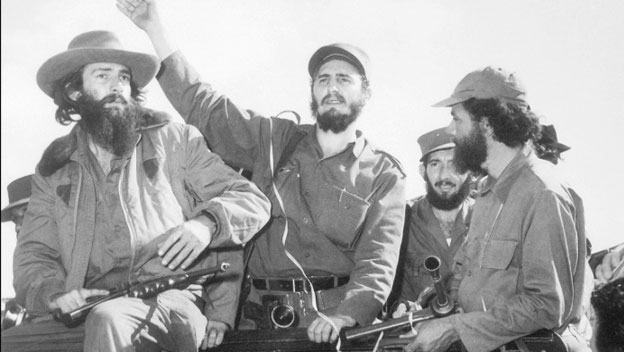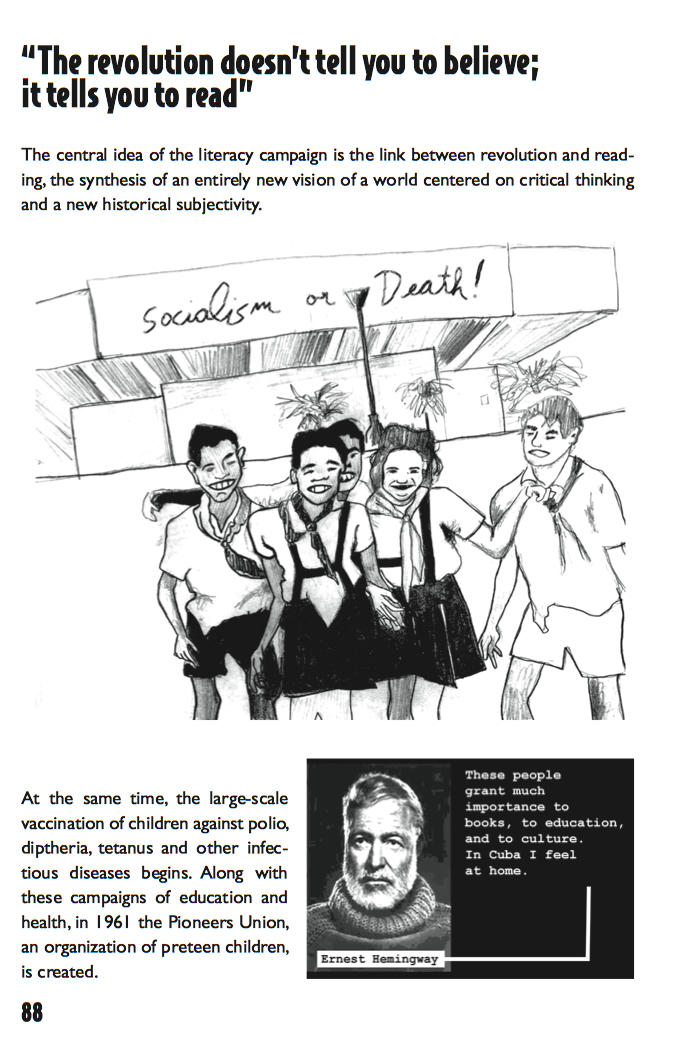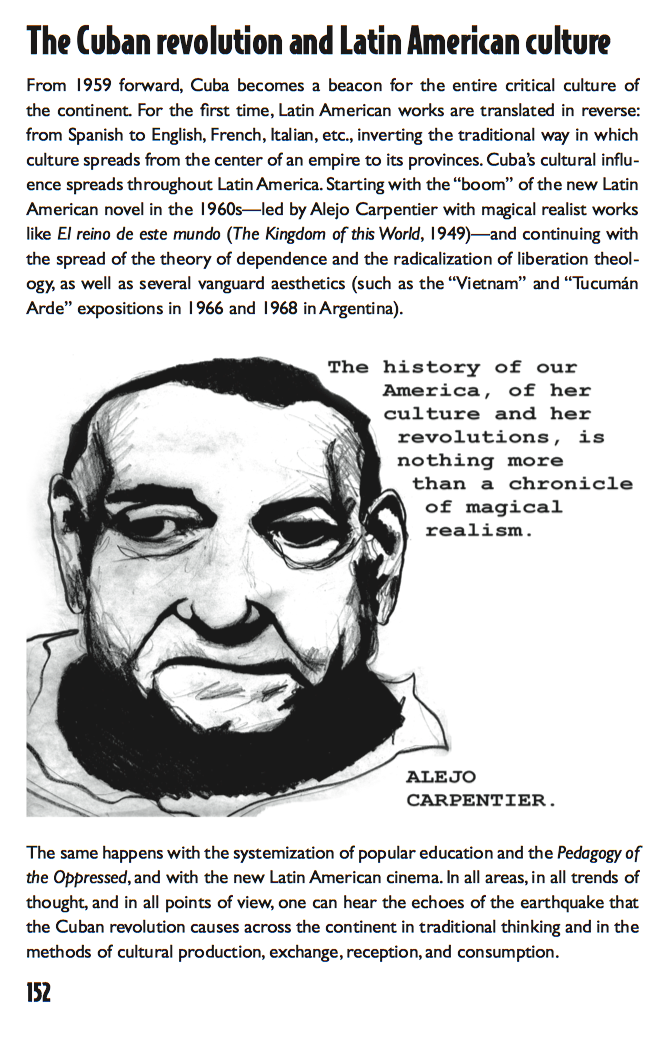Con historietas y fotos divertidas, este texto corto expone las ambiciones de Castro, el liber que quiso dar rasgos creativos, inteligentes, y humanitarios a la cara del socialismo. En Fidel, Néstor Kohan y Nahuel Sherma nos muestran un hombre que no puede ser distinguido ni de su revolución, ni de su patria.

The death of Fidel Castro has occasioned mourning, celebration, a New York Times obituary sixty-seven years in the making, and appraisals of El Comandante’s political work from all across the globe.
Castro is man about whom it’s impossible to be objective. There’s no denying that the Times obituary, for instance, is measured and thoughtful, and yet a cold eye can detect The Gray Lady tipping her hand at times. Why, one might, ask are the acts of torture perpetrated by the Batista regime mentioned only as an aside, and as reported speech ("[Castro] complained that the United States had raised not a whimper when Mr. Batista had tortured and executed thousands of opponents.”) and not as an historical fact that precipitated insurrection? Castro’s victory in ’59 was the end result of activity against colonial oppression that had been fomenting in Cuba for close to a century. And yet from the Times obit one might gather that the revolution in Cuba was nothing more than the escapade of a group of determined young rabble-rousers.
It remains to be seen whether history will indeed absolve Fidel. But what we can do now is to read through diverse sources on the subject of Castro’s regime—not just media published by corporations that stand to gain smearing any anti-capitalist resistance.
Seven Stories has published three great texts on Castro and Cuba: Néstor Kohan and Nahuel Scherma’s Fidel, an impassioned, illustrated biography of the titular leader; the Spanish edition of Fidel from our Siete Cuentos imprint, and Tom Hayden’s Listen, Yankee!, a detailed analysis of U.S.-Cuban relations that predicted this year’s détente. We hope you’ll take a look.
Below for your enjoyment are three pages from Fidel which take on underreported elements of Castro’s life and work:







